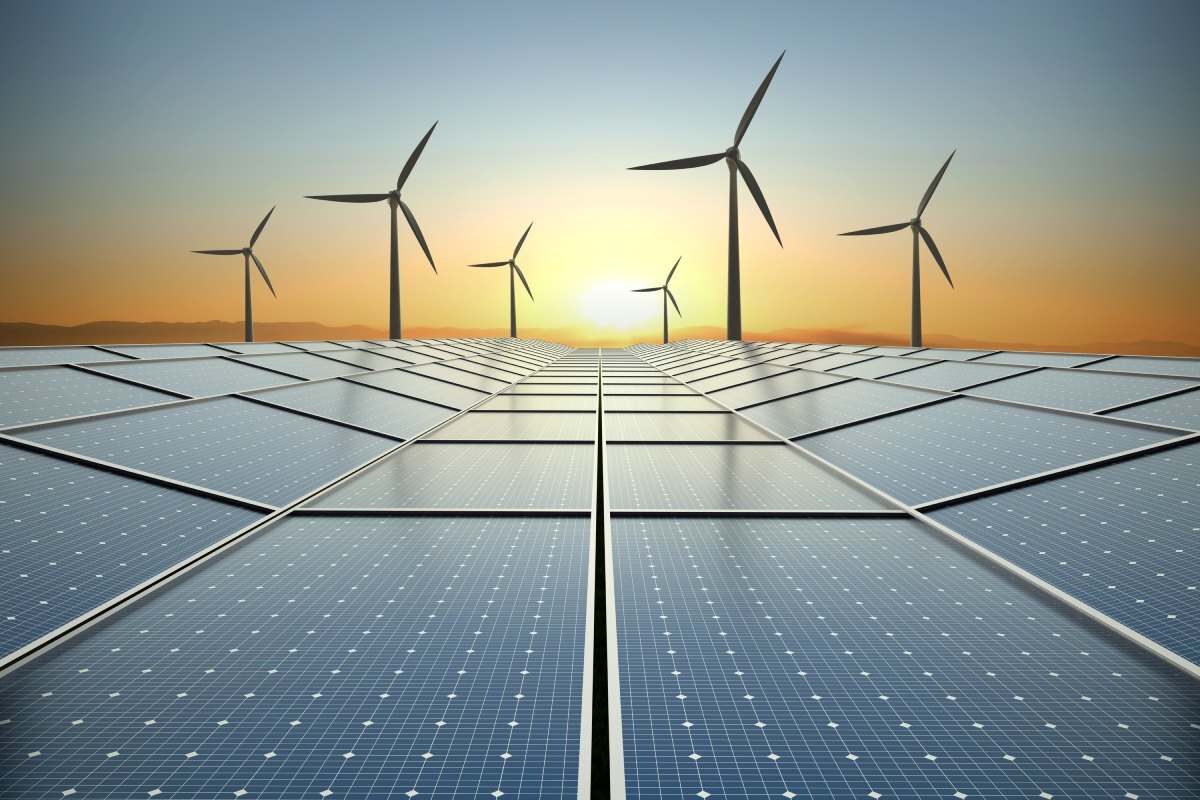
Renewable energy stocks rose this week when a tax on solar and wind projects was removed from the Senate’s version of President Trump’s One Big Beautiful Bill Act.
However, the reprieve for these companies won’t last long.
Instead, Republicans are striking a serious blow against the clean energy sector that Democrats and industry trade groups say will raise costs for consumers and wipe out thousands of jobs.
Nonetheless, investors reacted to the fact that a $7 billion tax on wind and solar energy projects that had originally been inserted into the Senate bill was ultimately struck from the legislation.
A few Senate Republicans were also able to secure a one-year extension for wind and solar companies to qualify for existing tax breaks that were put in place during the Biden administration.
This was enough to boost renewable energy stocks.
Shares of Sunrun (RUN) soared 11% on Tuesday, while SolarEdge Technologies (SEDG) gained 7.2%.
First Solar (FSLR)– the only large-scale solar panel manufacturer in the U.S. – rose 7.6% on Wednesday.
The American Clean Power Association (ACP) told CNBC that projects that start construction within 12 months of Trump's bill becoming law would still be able to qualify for full tax credits.
Projects that start construction after 12 months of the bill becoming law have to enter service by the end of 2027 to qualify for the credit.
‘We can’t afford to pick winners and losers’
It essentially adds up to a “twelve-month phase out of clean energy tax incentives,” as ACP CEO Jason Grumet called it in a statement about the Senate’s legislation.
“The Senate reconciliation package is a step backward for American energy policy,” he said. “The intentional effort to undermine the fastest-growing sources of electric power will lead to increased energy bills, decreased grid reliability, and the loss of hundreds of thousands of jobs. Most discouraging is forfeiting the progress we’ve made in manufacturing batteries, wind turbines and solar panels, and the economic growth occurring in communities across the country.”
Grumet noted that with energy demand soaring in the U.S. – which is being driven in part by the tech industry’s push to build more AI data centers – the country should be looking to maximize all sources of energy.
“While it was expected that this legislation would shift the direction of U.S. energy policy, we can’t afford to pick winners and losers when it comes to reliable, American-made energy,” Grumet said. “We need all of it— and we need it fast.”
The Senate bill did preserve tax breaks for the construction of nuclear power reactors – a clean energy source seen as crucial to the AI data center sector.
But wind and solar energy projects are responsible for nearly two-thirds of new electric capacity that is planned to come online this year in the U.S.
Elon Musk has voiced his support for clean energy – which is not surprising given his role in the electric vehicle market. It was one of those issues that has caused a rift with President Trump, who has long opposed renewable energy projects.
“Solar power is so obviously the future for anyone who can do elementary math,” Musk said on X last month.
Solar power is so obviously the future for anyone who can do elementary math https://t.co/0Qw1djIkjs
undefined Elon Musk (@elonmusk) June 6, 2025
Meanwhile, First Solar has said that its company’s impact on the U.S. economy is projected to grow to a total of more than 30,000 jobs and almost $2.8 billion in labor income starting in 2026.
This projection is due to its expansion in Alabama, Louisiana, and Ohio – all three states that are Republican strongholds.
In fact many of the jobs that have been created by the clean-energy industry are in Red States, which is why many in the industry were surprised to see wide-spread opposition from Republicans.
Mike Carr, Executive Director of the Solar Energy Manufacturers for America (SEMA) Coalition, said in a statement about the Senate’s legislation that America would be ceding business to China – and hinted that it would essentially undercut Trump’s tariffs.
“As we have been telling Members of Congress for months, this bill will lead to a flood of Chinese imports, hurting U.S. manufacturing jobs and investments,” Carr said.
He added that the bill “quickly terminates incentives to buy American-made solar, while China will continue to benefit from American taxpayer dollars for projects beginning construction by the end of the year.”
The bill is now headed to the House for approval before being signed into law by Trump.
Your email address will not be published. Required fields are markedmarked